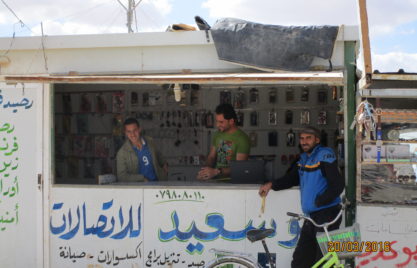Only 13.7% of micro-enterprises grew into small and medium-sized projects in Jordan, which leaves considerable potential for the role of Microfinance Institutions in the growth of micro and small-sized enterprises.
This paper aims at describing and evaluating the process which the owners of micro-enterprises can undergo to help them grow their micro-enterprises into small and medium sized enterprises. We evaluated the impact of non-financial services of a microfinance institution in Jordan on the performance of MSE entrepreneurs. The paper developed certain graduation criteria, namely: finishing 3 loan cycles with excellent commitment of repayment, continuous profit growth rate as a result of activities (sales) expansion, formalize the business by officially registering it, and creating jobs for local employment. We reviewed and evaluated the existing MFI portfolio of micro-enterprises at the end of 2015 and we found only 8,000 out of 56,000 clients who took out productive loans for establishing or expanding their enterprises. Accordingly, the paper made use of a sample of 8,000 clients who took out productive loans and had accessed non-financial services provided by the MFI during a period of 6 – 18 months. With the use of standard data analysis alongside the graduation criteria, the study found that the “AS IS” non-financial services have influenced the performance of a few MSE entrepreneurs; only 13.7% of MFI’s clients grew. This is below the international practices which indicate that 50% and 60% of modern MSE in Asia and Latin America grew from micro entrepreneur. Even in African countries such as Nigeria, the enterprises which grew naturally from micro to small is 43.7%. However, the situation in Jordan was found to be similar to other low-income African countries such as Rwanda (11%) and Botswana (20%).
Based on these results, it is concluded that a cornerstone of MFI business strategy would be to design and deliver more comprehensive and innovative financial and non-financial services to MFI’s clients; i.e., the “TO BE” approach. Every non-financial service—consultancy, training, and information sharing—should be designed to achieve the greater goal of supporting clients in strategically starting and growing their business. The recommended categories used for the “TO BE” Non-Financial Support framework have been provided in this paper.
By Bashar Al-Zu’bi, PhD
This paper has been accepted and will be published in the 12th International Conference on Management, Finance and Entrepreneurship, Istanbul, Turkey (21 – 22 October, 2017), International Foundation for Research and Development (IFRD).



